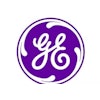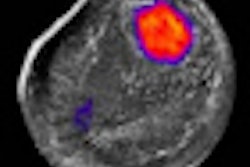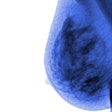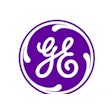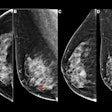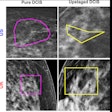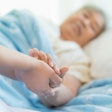Offering colorectal cancer screening to minority women at the time of their mammography exam -- and without the need for a physician's referral -- boosts screening adherence rates, according to a new study published online October 25 in the journal Cancer.
This is good news, as colorectal cancer screening is inadequate in minority communities, particularly among those who lack insurance, according to researchers at Memorial Sloan-Kettering Cancer Center in New York City.
Lead author Moshe Shike, MD, and colleagues examined whether offering colorectal cancer screening to minority women at the same time as the women received their mammography screening exam would increase adherence to colon screening guidelines, which recommends that women begin regular yearly screening at the age of 50.
"Inadequate screening for colon cancer is ... pronounced in minority communities such as Harlem, New York, where the five-year survival rate of colorectal cancer patients is 20% compared with the national average of 47% to 62%," Shike wrote (Cancer, October 25, 2010).
The study included 616 women attending the Breast Examination Center of Harlem, a community outreach program of Memorial Sloan-Kettering that offers free breast and cervical cancer screening to primarily black and Hispanic women. Participation in the study was offered to all eligible women seen between July 2003 and October 2005; participants had to be at least 50 years old with no history of colorectal cancer or screening within the previous 10 years.
Racial composition of the study participants was 49% black non-Hispanic, 34% white Hispanic, 9% black Hispanic, and 8% others. Of the 611 total participants, 233 (38%) of the women spoke only Spanish, while 378 (62%) also spoke English.
"We wanted to make [colorectal cancer screening] easy, less costly," Shike told AuntMinnie.com. "We had a bilingual staff person who could speak Spanish to women who were coming in for their mammograms -- a good percentage of these women spoke Spanish. This staff member explained the rationale for colorectal cancer screening, and the majority of the women were interested in having it done. Very few said they weren't interested."
During the study period, 2,616 women were eligible: the 611 who actually participated represented 23% of the eligible population. Of the women who participated, 397 (65%), attended a precolonoscopy medical evaluation appointment and 337 (55%) went on to have a screening colonoscopy. Only 60 (15%) did not.
"These data indicate that once the women's attention was captured and an adequate explanation was given -- facilitated by explaining in Spanish to those who did not speak English -- the overwhelming majority were interested in colorectal cancer screening," Shike wrote.
The study shows that there are opportunities to boost colorectal screening rates, and therefore improve women's health over the long term, although alternatives to traditional medical insurance need to be made available, according to Shike. Among the study participants who declined colon screening, the major barrier was a lack of insurance, partially addressed by Shike's team offering alternative funding.
The women who refused the screening exam cited a number of reasons, including wanting to talk to their primary physician, wanting the exam but not wanting to participate in a study, being afraid of the exam, lacking time for it, or not understanding its purpose.
"We saw an opportunity to bring [these women] into the system and to facilitate the process," he said. "There's no reason why [this technique] couldn't make the process of getting colorectal cancer screening easier on everyone."
By Kate Madden Yee
AuntMinnie.com staff writer
October 25, 2010
Related Reading
Breast cancer diagnostic delay linked to race, not insurance, October 05, 2010
Women of Mexican origin at higher risk for breast cancer, September 3, 2010
Breast cancer kills more uninsured black women, June 24, 2010
Breast-conserving therapy appropriate for black women, May 20, 2010
Highest breast cancer decline seen in affluent white women, February 16, 2010
Copyright © 2010 AuntMinnie.com




